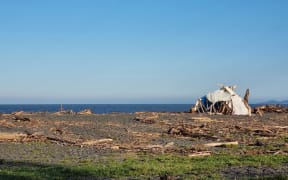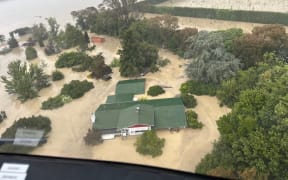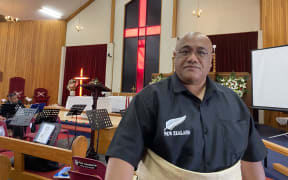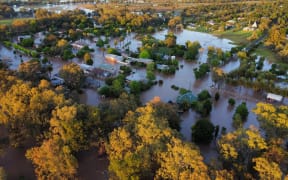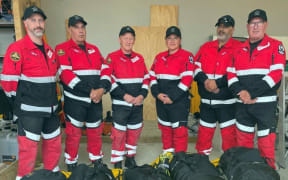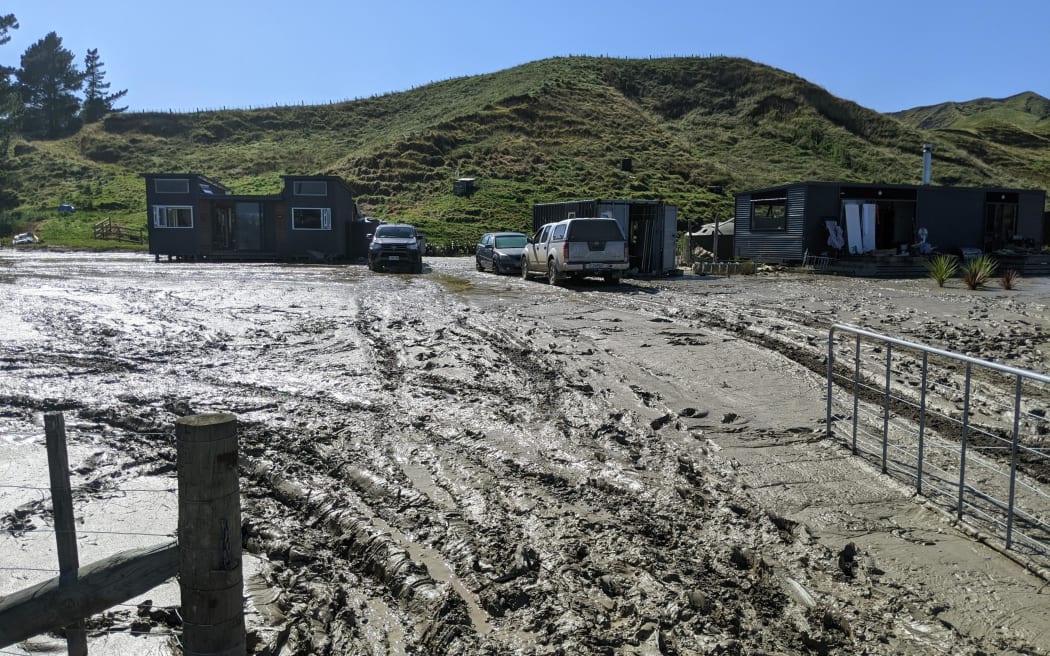
Sticky, smelly silt and sludge coat the ground after Cyclone Gabrielle. Photo: RNZ / Matthew Theunissen
In the seaside town of Tolaga Bay, just north of Gisborne, things seem fairly normal at first glance.
School is back after a week off, shops are open, power is back on and it's fairly easy to pick up a wifi signal.
The town's many forestry workers, though, are not able to head to the pine plantations so are out of work.
Outside the Tolaga Bay Inn, half a dozen forestry workers are parked up waiting for instructions from regional civil defence so they can be paid to join the clean-up.
Bruce Smyth is too, as he catches up with whānau across the road.
"Lot of my friends have their own logging companies, they can't get to work," he said.
"My boss says we've got three logging crews and we'd be lucky if one of them can get to work."
He's going to try and get work cleaning up Cyclone Gabrielle's mess.
A meeting about this is due to be held in Tolaga Bay on Tuesday.
There's no shortage of cleaning work available - and it all involves silt. Tonne upon tonne of sticky, oozing, stinking silt.
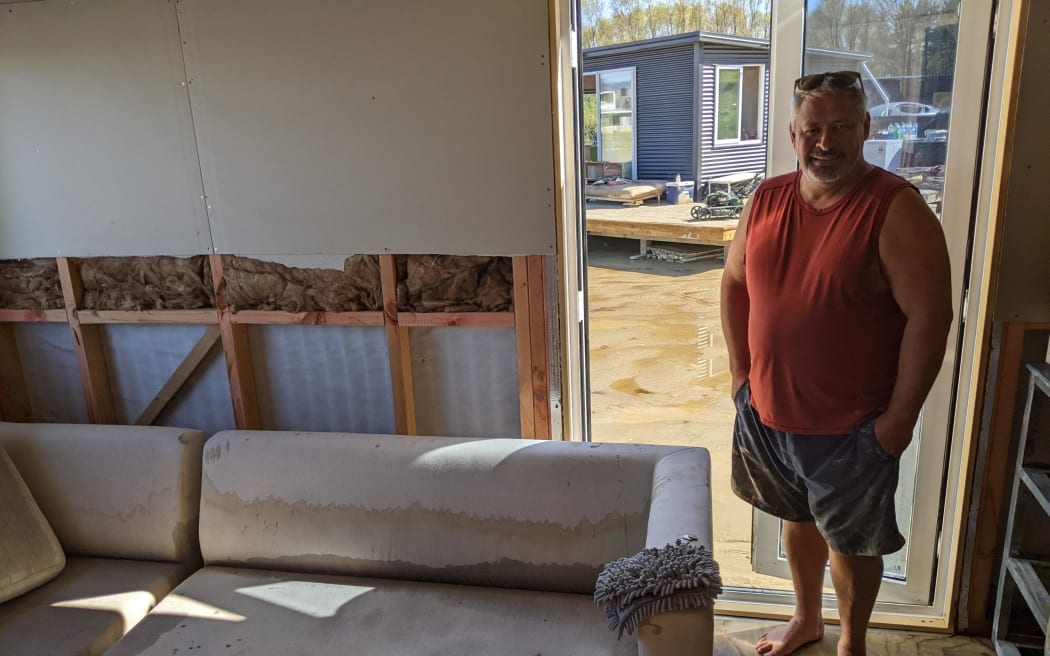
Bill Bartley is helping neighbours Aroha and Abel clean up their property. Photo: RNZ / Matthew Theunissen
On Kaiaua Rd, Bill Bartley is helping neighbours Aroha and Abel whose holiday home is completely surrounded by the stuff. It's above gumboot height in places.
His own place was pretty much totalled by Cyclone Gabrielle and he will have to rebuild.
"Silt is basically your runoff from across the farms and the rivers and it basically picks up all the mud, and mixed in with that is all of the herbicides and the pesticides ...[and] definitely some sewage."
Aroha said it was neighbours like Bill who would get them through this.
"Bill's the most amazing neighbour," she said.
"He came over and managed to save half of our stuff but didn't get to save his own stuff."
As of Monday it was only possible to get as far north of Tolaga Bay as the turnoff to Anaura Bay before the road became impassable.
Teams of diggers were loading bucket after bucket of the sludgy silt into the back of trucks.
At Puketawai Marae, generations of whānau came together with mops and buckets to clean the silt and water from inside.
Victor Walker is a trustee there.
"The first thing that hits you is the smell of the silt and it's putrid and rancid," he said.
"Let's get the silt off so we can start moving."
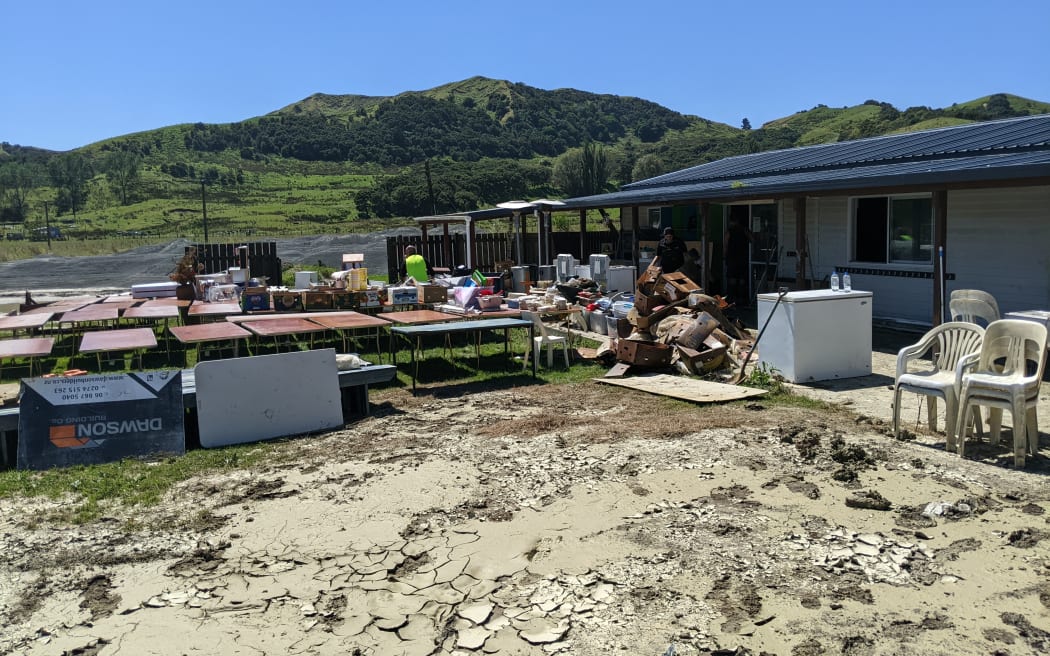
At Puketawai Marae, Tolaga Bay, generations of whānau came together with mops and buckets to clean the silt and water from inside Photo: RNZ / Matthew Theunissen
As well, the landscape is littered with forestry slash - leftover giant logs and branches from felled forests swept down by floodwater.
Some locals are angry with the sector, which they blame for making things far worse.
Walker said that view was too simplistic.
"There are number of things happening that are contributing to the problem. Certainly forestry is contributing to that," he said.
"For generations now our cropping practices haven't been great."
People affected by the cyclone in Tai Rāwhiti and elsewhere are eligible for support, including costs for those who have had to leave their homes, emergency food, power bills, repairs and loss of income.
A payment is also available for those who have had evacuees staying with them.
